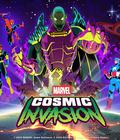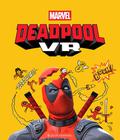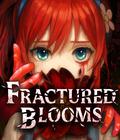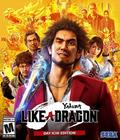For once, a Yakuza title, Yakuza: Like A Dragon, doesn't follow the adventures of Kiryu. Instead, you're put into the shoes of Ichiban Kasuga, a good-hearted dork who joined the yakuza to pay tribute to a man who showed him how to be honorable and proud. However, when one of his fellow yakuza kills a man in cold blood, Ichiban's mentor asks him to take the fall. When Ichiban gets out of prison 15 years later, things have gone crazy. His mentor has betrayed his own family to the Omi Alliance and seemingly all but destroyed the yakuza in Japan. When Ichiban confronts him, his mentor shoots Ichiban, who barely manages to survive after waking up in a trash heap in Yokohama. Now he must figure out what caused everything to change and what to do with his life after everyone seems to have betrayed him.
The biggest change to the series is the new protagonist, Ichiban. In many ways, Ichiban is the polar opposite of Kiryu. He's goofy and sociable, but what he shares with Kiryu is the die-hard moral code and genuine excitement for goofy things. Whereas half of the fun of Kiryu came from his stoic behavior, half of the fun of Ichiban comes from this likeable guy suddenly becoming a stone-cold badass when the moment calls for it. I enjoy Kiryu more, but Ichiban is an incredibly pleasant character with a hero complex; it's a good way to have a protagonist as honorable as Kiryu without being his clone.
Beyond that, the story is the usual crime drama with a heavy dose of political and economic thriller that the Yakuza franchise has mastered. You quickly find yourself involved in a complex narrative involving twists, turns, false names, multiple traitors, and the usual crime drama plots. Like A Dragon benefits from having a larger cast of characters, and more people interacting with the story help the tale to feel more cohesive. Of course, the side-quests are still the same ridiculous tone-breaking nonsense that Yakuza players have come to know and love.
The most significant change to Yakuza 7 is the combat system. Rather than the action-based combat of previous entries, Yakuza 7 goes full-on JRPG. Ichiban is a big fan of Dragon Quest, and his overactive imagination means that he sees combat like that classic franchise. This means turn-based battles, multiple party members, MP, and so on. It's a traditional combat system that intentionally evokes Dragon Quest in many ways, and it should be easy for JRPG neophytes to break into.
The nice thing is that it feels natural. Entering combat shifts you into battle mode, where you can attack, defend, and use special moves that require MP. The combat system works hard to evoke the feeling of the Yakuza combat from older titles. For example, if someone is near an object like a bicycle, they'll incorporate it into their basic attack for extra damage. You can time your defense Paper Mario-style to reduce the damage you take from enemies, and special moves reward you for timed button presses. The title includes a Persona-style "game over" if Ichiban goes down, which can be frustrating, but I only had that occur once in my entire playthrough, and that was largely due to an unlucky hit.
You may be wondering how you get JRPG-style combat from a Yakuza setting, and the answer is largely by figuring out ways to translate classic JRPG classes to modern concepts. For example, Ichiban's hero class, which is a clear parallel to the main characters of Dragon Quest, replaces swords with baseball bats. Eri's clerk class is a ninja, but instead of ninja gadgets, she uses various office supplies. Nanba is a homeless man who serves as the party's mage, but rather than casting fireballs and magic missiles, he throws bread on enemies to attract pigeons to peck at them, or he uses a lighter and a healthy dose of alcohol to blow fire at them.
The neat thing is that each character has distinctive features but can be customized. Each character has a unique class that belongs only to them and a series of Level Up Skills that they keep no matter what. You can change characters to different jobs, which allow them to learn skills that can be kept permanently but can significantly change how they play. For example, you can create a healer with strong physical attacks or a mage who can reliably do other types of damage.
In addition to regular attacks, Ichiban has access to summons, which involves calling his friends on a smartphone after which (for a small fee) they'll swoop in and perform incredibly powerful super-attacks that have an associated cooldown; they also cost money and are unavailable anywhere Ichiban can't get cell phone service. These are a bit overpowered and can trivialize a lot of the fights, but the animations are amazing, and it's worth completing side-quests to send a horde of angry crawfish swarming over your foes.
The one genuine problem with Like a Dragon is that it's an easy game. Again, this isn't a new problem for the Yakuza series, but it's the same problem of becoming so powerful that random encounters are a chore rather than a challenge. The game can punish you if you forgo upgrades or get lazy, but it's going to be a pretty relaxing game to play. I just wish it encouraged using the various mechanics a bit more.
I am predisposed to enjoying JRPGs, so the shift in Yakuza: Like A Dragon's gameplay didn't bother me as much as it might someone who enjoyed the action gameplay of the previous titles. However, I also think that it feels like a very natural evolution of the series. As Yakuza has progressed, the focus on the over-the-top heat actions became more central to the gameplay, and by turning the game into a JRPG, you get a far more natural inclusion of the heat actions instead of regularly interrupting action-based gameplay with lengthy cut scene attacks.
Beyond the changed combat system, Like A Dragon is pure Yakuza. You'll play tons of minigames, encounter absurd side-quests, spend hours trying to get a specific stuffed animal from a crane machine, eat every bit of food you see, and more. This hasn't shifted from previous games, so you have a good idea of what to expect. Perhaps the biggest change is that your various party members have their own side-quests, which can unlock new skills and jobs.
There are a few significant new minigames in Like A Dragon, the most noteworthy of which are the kart racing and building management sims. Kart racing is pretty much like Mario Kart, but you have bazookas instead of turtle shells. You can lightly customize your car and engage in an oddly addictive racing arc where you beat several ridiculous challengers. It's no match for the real Mario Kart, but it can be quite fun.
Building management is this game's money maker. You begin with a small confectionery company and must use seed money to purchase and upgrade new companies while also hiring and maintaining a large stable of employees. It's a simple but oddly addictive minigame, and since you unlock new employees by doing other side-quests, it feeds into itself. However, it also destroys the game's economy, and you'll be able to earn 3 million yen every seven minutes once you have it up and running. Again, it's not necessarily bad, but it plays into Like A Dragon being too easy.
Visually, Like A Dragon is on par with recent Yakuza titles. It has a mix of relatively low-budget cut scenes mixed with some genuinely awesome big-budget ones. The wild cut scenes for special attacks give the game a solid impact and feature funny animations. Unlike some of the other recent Yakuza titles (but like Judgment), the game features a surprisingly good dub. The character voices are excellent, and aside from stumbling on the honorifics, they hit their marks admirably. I would argue that the Japanese still fits better, but the dub does an admirable job. Like Judgment, it isn't a complete dub, so characters will randomly change back into their Japanese voices during minigames or while walking around.
Yakuza: Like A Dragon is a wonderful addition to the franchise. It hits the mark with a likeable new protagonist and an engaging new combat system without losing what makes Yakuza great. It suffers from issues like a low difficulty (another Yakuza staple), but it features top-notch humor and charm. If you like Yakuza, then you'll like Like A Dragon. It is everything that makes the series great and is one of the freshest entries since Yakuza 0.
Score: 9.0/10
More articles about Yakuza: Like a Dragon










 Yakuza: Like a Dragon is a complete reimagining of the franchise, a landmark to coincide with the series' 15th anniversary.
Yakuza: Like a Dragon is a complete reimagining of the franchise, a landmark to coincide with the series' 15th anniversary.
































